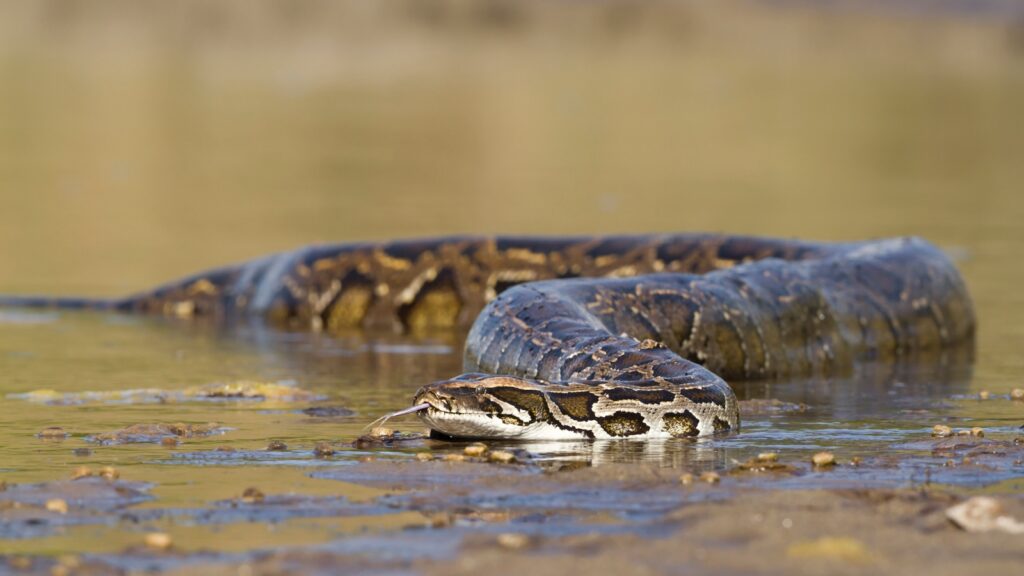iStockphoto / Utopia_88
As population numbers of invasive Burmese pythons in Florida continue to swell year after year, one of ecologists’ worst fears has been confirmed, they are eating endangered species.
A research team in Key Largo, one of the first islands in the Florida Keys, had set up motion-activated cameras to monitor the endangered Key Largo cotton mice. The cameras worked, they found the mice, but for the first time in science they also documented invasive Burmese pythons preying on an endangered species.
Over a 10-day period, a camera set up on the Nike Missile Base in Crocodile Lake National Wildlife Refuge captured the same snake, a 7-foot female Burmese python, preying on five different endangered mice and eating 2 of them.
Bill Kearney of the Sun-Sentinel spoke with Michael Cove who is an author on a new study titled ‘Mammal declines correspond with increasing prevalence of Burmese pythons at their southern invasion front in the Florida Keys.’
Cove, a mammologist (pictured above), suggested the possible reason this 7ft invasive python only ate 2 of the 5 is because “snakes shouldn’t waste their energy on the small stuff” which is good for the endangered Key Largo cotton mice which weigh just 0.98oz but it could be very, very bad news for the endangered Key Deer and other medium-to-large mammals in the region.
Michael Cove went on to tell the Sun-Sentinel “These adult snakes could be eating these endangered rodents, when previously we’d thought that only juvenile snakes would be a threat.”
The study, published in December, found a decrease in mammals in the Upper Florida Keys (Key Largo, Islamorada, etc) which are the barrier islands invasive snakes first encounter when pushing into the Keys. Going into they study, they suspected “the establishment of Burmese pythons in the Keys could be devastating for island mammal communities and their ecosystem functions.”
What they found was since 2016, population numbers of the endangered Key Largo cotton mice, Key Largo woodrats, and invasive black rats all decreased. The study also shed light on the impact invasive Burmese pythons have on rodent numbers.
Ultimately, what the new study found is Burmese pythons are already having a measurable ecological impact on the Florida Keys. What that means for the future of the island chain remains unclear.

